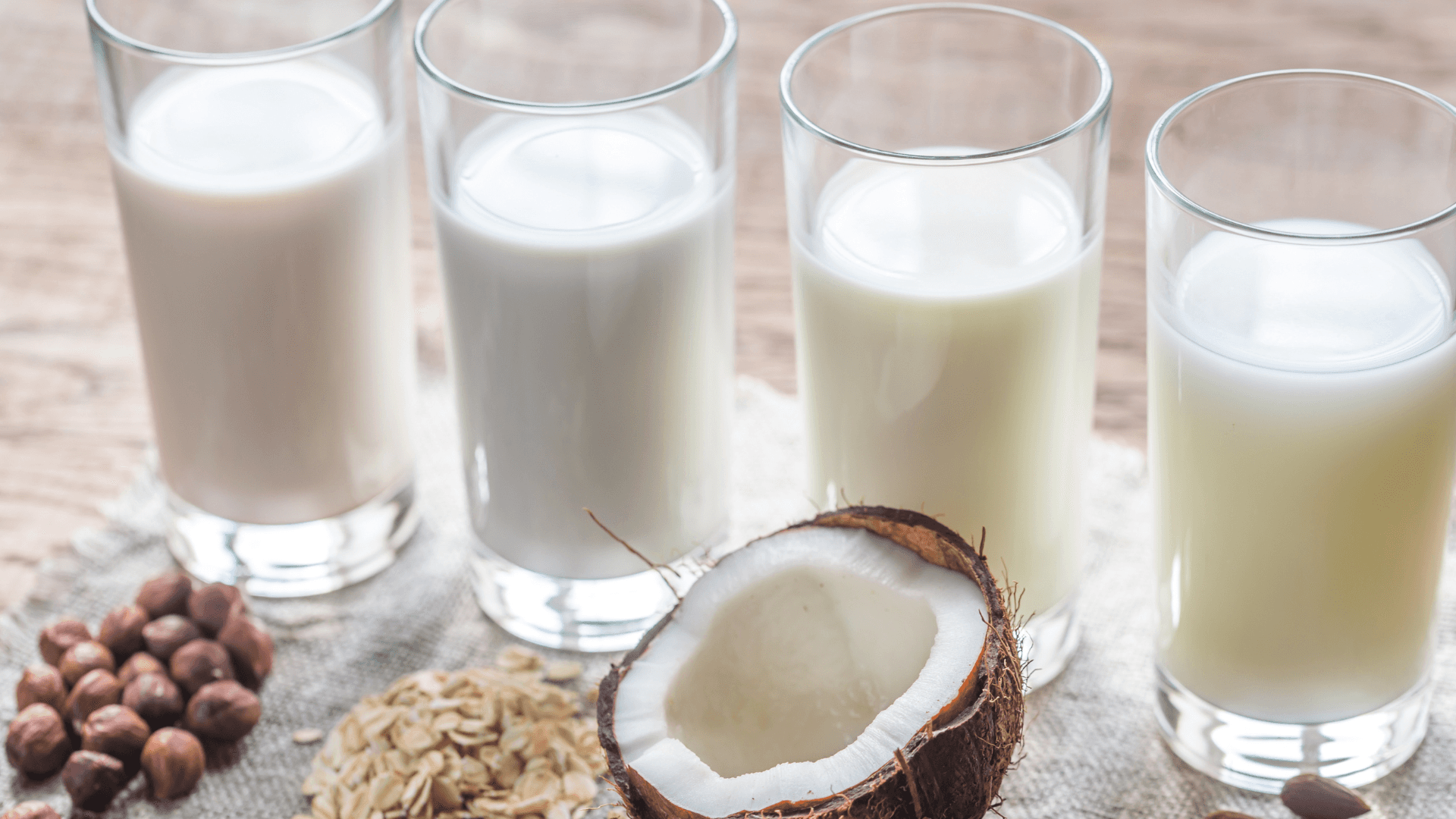Digestive Health: How Probiotics and Prebiotics Can Transform Your Well-Being
Digestive Health: How Probiotics and Prebiotics Can Transform Your Well-Being
Digestive Health: How Probiotics and Prebiotics Can Transform Your Well-Being
Mar 19, 2024
Mar 19, 2024
Mar 19, 2024

Discover the power of probiotics and prebiotics for digestive health. Learn how they work together to improve digestion and strengthen the immune system.
Discover the power of probiotics and prebiotics for digestive health. Learn how they work together to improve digestion and strengthen the immune system.
Discover the power of probiotics and prebiotics for digestive health. Learn how they work together to improve digestion and strengthen the immune system.
The digestive tract plays a crucial role beyond food digestion, hosting a complex bacterial ecosystem that profoundly influences our health. In this context, probiotics and prebiotics become fundamental for the balance and functioning of the digestive system, nourishing and regulating our intestinal microbiota but significantly impacting our immunity and overall well-being. This article explores the importance of probiotics and prebiotics and how their harmonious interaction promotes healthy digestion and strengthens the body's defenses.
Understanding Digestive Health and the Gut Microbiota
The gut microbiota is essential for our health, aiding digestion and influencing various aspects of our metabolism and well-being. One of the roles of the microbiota is to assist in the digestion of fibers. It produces short-chain fatty acids such as propionate and butyrate, which regulate blood glucose levels, promote a feeling of fullness, and can even reduce insulin resistance and diet-induced obesity. Additionally, gut microorganisms are involved in the metabolism of bile acids, essential for fat digestion. They also play a role in cholesterol regulation and appetite control.
The intestinal tract houses about 80% of the body's immune cells, responsible for producing vitamins and hormones and helping to control inflammation and metabolism. Imbalances in the gut microbiota have been linked to various mental illnesses and mood disorders, highlighting the close connection between gut and mental health. Therefore, to promote a healthy gut microbiota and ensure the full functioning of various systems, it is essential to adopt beneficial habits, such as:
Consuming fruits and vegetables, as their dietary fibers help regulate bowel movements and serve as food for beneficial bacteria.
Consuming fermented foods like yogurt, kimchi, and kombucha introduces beneficial bacteria into the gut and produces essential vitamins.
Reducing stress.
Maintaining regular meal times.
Avoiding prolonged use of certain medications, such as antibiotics, and those that decrease gastric secretion (omeprazole, lansoprazole, pantoprazole, etc.).
Considering the use of probiotic and prebiotic supplements.
Combining Probiotics and Prebiotics
Probiotics are living microorganisms found in fermented foods like yogurt, kefir, sauerkraut, and kombucha. They restore and maintain the balance of the gut microbiota, improving digestion and protecting against pathogens and diseases, thereby strengthening the immune system.
Prebiotics are dietary fibers found in foods such as garlic, onions, asparagus, and bananas. Although not digestible by the human body, they serve as fodder for probiotics in the gut, encouraging the growth of beneficial bacteria that improve gut health, nutrient absorption, and the production of vital vitamins.
When combined, probiotics and prebiotics form synbiotics, often sold as fermented dairy drinks, tablets, and supplements. They act directly on the digestive system through their fibers, vitamins, and minerals, helping to re-establish the balance of the gut microbiota and recover the immune system.
__
In summary, probiotics and prebiotics are essential components for optimal digestive health. Together, they promote a healthy balance of the gut microbiota, improving digestion, strengthening the immune system, and supporting overall gut health.
The digestive tract plays a crucial role beyond food digestion, hosting a complex bacterial ecosystem that profoundly influences our health. In this context, probiotics and prebiotics become fundamental for the balance and functioning of the digestive system, nourishing and regulating our intestinal microbiota but significantly impacting our immunity and overall well-being. This article explores the importance of probiotics and prebiotics and how their harmonious interaction promotes healthy digestion and strengthens the body's defenses.
Understanding Digestive Health and the Gut Microbiota
The gut microbiota is essential for our health, aiding digestion and influencing various aspects of our metabolism and well-being. One of the roles of the microbiota is to assist in the digestion of fibers. It produces short-chain fatty acids such as propionate and butyrate, which regulate blood glucose levels, promote a feeling of fullness, and can even reduce insulin resistance and diet-induced obesity. Additionally, gut microorganisms are involved in the metabolism of bile acids, essential for fat digestion. They also play a role in cholesterol regulation and appetite control.
The intestinal tract houses about 80% of the body's immune cells, responsible for producing vitamins and hormones and helping to control inflammation and metabolism. Imbalances in the gut microbiota have been linked to various mental illnesses and mood disorders, highlighting the close connection between gut and mental health. Therefore, to promote a healthy gut microbiota and ensure the full functioning of various systems, it is essential to adopt beneficial habits, such as:
Consuming fruits and vegetables, as their dietary fibers help regulate bowel movements and serve as food for beneficial bacteria.
Consuming fermented foods like yogurt, kimchi, and kombucha introduces beneficial bacteria into the gut and produces essential vitamins.
Reducing stress.
Maintaining regular meal times.
Avoiding prolonged use of certain medications, such as antibiotics, and those that decrease gastric secretion (omeprazole, lansoprazole, pantoprazole, etc.).
Considering the use of probiotic and prebiotic supplements.
Combining Probiotics and Prebiotics
Probiotics are living microorganisms found in fermented foods like yogurt, kefir, sauerkraut, and kombucha. They restore and maintain the balance of the gut microbiota, improving digestion and protecting against pathogens and diseases, thereby strengthening the immune system.
Prebiotics are dietary fibers found in foods such as garlic, onions, asparagus, and bananas. Although not digestible by the human body, they serve as fodder for probiotics in the gut, encouraging the growth of beneficial bacteria that improve gut health, nutrient absorption, and the production of vital vitamins.
When combined, probiotics and prebiotics form synbiotics, often sold as fermented dairy drinks, tablets, and supplements. They act directly on the digestive system through their fibers, vitamins, and minerals, helping to re-establish the balance of the gut microbiota and recover the immune system.
__
In summary, probiotics and prebiotics are essential components for optimal digestive health. Together, they promote a healthy balance of the gut microbiota, improving digestion, strengthening the immune system, and supporting overall gut health.
The digestive tract plays a crucial role beyond food digestion, hosting a complex bacterial ecosystem that profoundly influences our health. In this context, probiotics and prebiotics become fundamental for the balance and functioning of the digestive system, nourishing and regulating our intestinal microbiota but significantly impacting our immunity and overall well-being. This article explores the importance of probiotics and prebiotics and how their harmonious interaction promotes healthy digestion and strengthens the body's defenses.
Understanding Digestive Health and the Gut Microbiota
The gut microbiota is essential for our health, aiding digestion and influencing various aspects of our metabolism and well-being. One of the roles of the microbiota is to assist in the digestion of fibers. It produces short-chain fatty acids such as propionate and butyrate, which regulate blood glucose levels, promote a feeling of fullness, and can even reduce insulin resistance and diet-induced obesity. Additionally, gut microorganisms are involved in the metabolism of bile acids, essential for fat digestion. They also play a role in cholesterol regulation and appetite control.
The intestinal tract houses about 80% of the body's immune cells, responsible for producing vitamins and hormones and helping to control inflammation and metabolism. Imbalances in the gut microbiota have been linked to various mental illnesses and mood disorders, highlighting the close connection between gut and mental health. Therefore, to promote a healthy gut microbiota and ensure the full functioning of various systems, it is essential to adopt beneficial habits, such as:
Consuming fruits and vegetables, as their dietary fibers help regulate bowel movements and serve as food for beneficial bacteria.
Consuming fermented foods like yogurt, kimchi, and kombucha introduces beneficial bacteria into the gut and produces essential vitamins.
Reducing stress.
Maintaining regular meal times.
Avoiding prolonged use of certain medications, such as antibiotics, and those that decrease gastric secretion (omeprazole, lansoprazole, pantoprazole, etc.).
Considering the use of probiotic and prebiotic supplements.
Combining Probiotics and Prebiotics
Probiotics are living microorganisms found in fermented foods like yogurt, kefir, sauerkraut, and kombucha. They restore and maintain the balance of the gut microbiota, improving digestion and protecting against pathogens and diseases, thereby strengthening the immune system.
Prebiotics are dietary fibers found in foods such as garlic, onions, asparagus, and bananas. Although not digestible by the human body, they serve as fodder for probiotics in the gut, encouraging the growth of beneficial bacteria that improve gut health, nutrient absorption, and the production of vital vitamins.
When combined, probiotics and prebiotics form synbiotics, often sold as fermented dairy drinks, tablets, and supplements. They act directly on the digestive system through their fibers, vitamins, and minerals, helping to re-establish the balance of the gut microbiota and recover the immune system.
__
In summary, probiotics and prebiotics are essential components for optimal digestive health. Together, they promote a healthy balance of the gut microbiota, improving digestion, strengthening the immune system, and supporting overall gut health.
Compartir en:
Compartir en:

Preservación de monumentos naturales: protegiendo tesoros globales para el futuro
Apr 1, 2025

Civilizaciones perdidas: Misterios del pasado
Jan 31, 2025

Historias ocultas de los monumentos más famosos del mundo
Jan 15, 2024

Exploración espacial y su impacto en la salud humana
Dec 2, 2024

El impacto de las redes sociales en las tradiciones de Año Nuevo
Nov 28, 2024

Año Nuevo: Costumbres, reflexiones y caminos hacia una celebración sostenible
Nov 28, 2024

Astronomía y Navidad: Desvelando la estrella de Belén y los fenómenos celestes
Nov 27, 2028

Sabores y tradiciones de la Navidad mundial
Nov 27, 2024

Mindful eating: Transforma tu relación con la comida a través de la alimentación consciente
Apr 15, 2024

Aguacate: Una fruta repleta de beneficios para tu salud
Apr 11, 2024

Explorando los diferentes tipos de leche
Apr 8, 2024

Té verde: Una fuente natural de salud y vitalidad
Apr 5, 2024

Superalimentos: Descubre el poder nutricional y los beneficios para la salud
Apr 3, 2024

Alimentos anticancerígenos: Descubre cómo reducir el riesgo de cáncer a través de la dieta
Mar 29, 2024

Los efectos del azúcar en el cuerpo
Mar 27, 2024
Ver También
Ver También
Ver También
Ver También

Preservación de monumentos naturales: protegiendo tesoros globales para el futuro
Apr 1, 2025

Civilizaciones perdidas: Misterios del pasado
Jan 31, 2025

Historias ocultas de los monumentos más famosos del mundo
Jan 15, 2024

Exploración espacial y su impacto en la salud humana
Dec 2, 2024

El impacto de las redes sociales en las tradiciones de Año Nuevo
Nov 28, 2024

Año Nuevo: Costumbres, reflexiones y caminos hacia una celebración sostenible
Nov 28, 2024

Astronomía y Navidad: Desvelando la estrella de Belén y los fenómenos celestes
Nov 27, 2028

Sabores y tradiciones de la Navidad mundial
Nov 27, 2024

Mindful eating: Transforma tu relación con la comida a través de la alimentación consciente
Apr 15, 2024

Aguacate: Una fruta repleta de beneficios para tu salud
Apr 11, 2024

Explorando los diferentes tipos de leche
Apr 8, 2024

Té verde: Una fuente natural de salud y vitalidad
Apr 5, 2024

Superalimentos: Descubre el poder nutricional y los beneficios para la salud
Apr 3, 2024

Alimentos anticancerígenos: Descubre cómo reducir el riesgo de cáncer a través de la dieta
Mar 29, 2024

Los efectos del azúcar en el cuerpo
Mar 27, 2024

